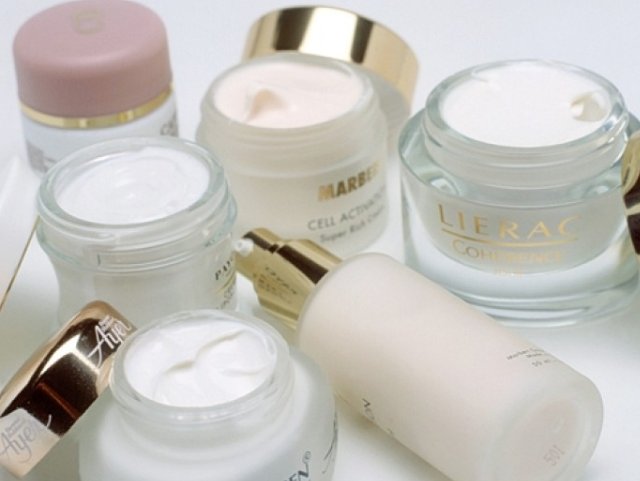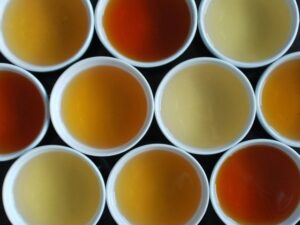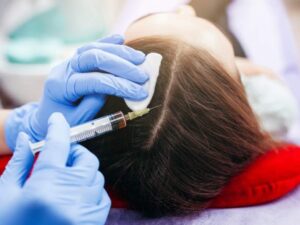As clinical studies shed light on our understanding of the human skin and its behavior, newer skin care regimes are constantly being modulated. Cosmetic giants spend millions of dollars every year, in the search and testing of promising new herbs, molecules and enzymes- each one touted to give us younger, lighter and healthier looking skin. For those of you who do not wish to undergo invasive and expensive dermatological treatments,You must often wonder- do any of these ‘miracle creams’ really work? How much is science, and how much is empty market hype? How much can I realistically expect out of my beauty potions? And are these creams safe to use? Let me help you make sense of the bombardment of new “ingredients” on the shelves of your favorite beauty store.
The first step towards taking care of your skin includes understanding your skin type. You’ll be surprised to know that Miami’s famed dermatologist Dr Leslie Baumann (‘The Skin Type Solution’ doctor) has identified 16 different skin types. Which is why, the toner or face cream that suited your friend so well, may not work for you at all. Is your skin oily or dry? Blotchy and tanned, or pale and blemish-free? Is your skin very sensitive, or resistant and hardy to any and all cosmetics? Is your skin wrinkled or taut? A quick and honest assessment can help you choose the right skin care regime for yourself. If you’re unable to be objective about your own skin, take Dr Leslie Baumann’s questionnaire at www.skintypesolutions.com/home and find out for yourself. Most women tend to buy all their skin care products from one particular brand. However your skin might need the cleanser of one brand, but the sunscreen of another brand.
For instance, if you have oily skin, use cleansers containing salicylic acid or glycolic acid. Toners and astringents can keep oil secretion under control, and tighten open pores. Use a gel or serum based moisturizer, instead of creams. And use sunscreen sprays (“sports” sunscreen), rather than sunscreen lotions. You can use a SPF containing compact powder, which will blot out excess sunscreen, and provide some additional sun-protection as well. There are various face packs and masks, which contain silica, talc or fuller’s earth, which can leave your skin looking fresh and matte, although only for a day or so. Chemical peels at a spa or a doctor’s office, can also temporarily reduce oil secretion on your face.
If you have dry skin, use non-foaming cleansers, and avoid toners altogether. If your skin is very dry, then you must avoid scrubs, and use thick moisturizers containing squalene, urea or NMF (natural moisturizing factor). Dietary supplements in the form of cod liver oil capsules, omega-3-fatty acids, evening primrose oil, EPA (eicosapentaenoic acid) and GLA (gamma linoleic acid), are all helpful in combating dry skin.
If your skin turns oily in the summer, and dry during winters, then you may have to change your skin care regime seasonally.
Walking into a beauty store, you might be confused by the sheer array of creams, serums and lotions, each one claiming to be “doctor recommended” or of “scientifically proven efficacy”. Flipping through the pages of a beauty magazine, you may find frightening pictures of needles pointed towards the eye of a model, along with innocent-looking jars of creams which claim to give you the same results in an inexpensive and non-invasive manner. So which one do I believe?
First and foremost, even if you choose to undergo medical treatments, you will still be expected to continue using your skin care and anti-ageing creams. It is always good to start from your early 20s, so that those earliest wrinkles can be delayed till your 40s, rather than appearing in your 30s. A simple sunscreen is always the best anti-ageing cream that you can use, provided you get into the habit in your younger days. This is because sunlight is responsible for the maximum damage done to our skin, especially if you are light-skinned. If your skin is prone to pigmentation issues, then one must remember that sunscreens only protect you from ultraviolet radiation. However, your skin can tan even from infrared radiation, emitted by tube lights, lamps, radiators and microwave ovens. The present consensus among the medical community is that, antioxidants like Vitamin C and Vitamin E can provide sufficient cover against infrared radiation. So if you have freckles or blotchy skin, apply Vitamin E gel or Vitamin C serum to your skin, before you apply your sunscreen.
Another question that foxes many women is this- What should I apply first, moisturizer or sunscreen? Opinions may vary among dermatologists as well. But in my experience, most women use chemical sunscreens. Chemical sunscreens must come in direct contact with the skin and have to interact with the skin cells, in order to get activated. Therefore, the sunscreen must be applied before the moisturizer. If you are using a physical sunscreen (the ones that leave a visible white coat on your skin, i.e, talcum powder or zinc paste), it must be the last layer to go onto your skin. If chemical sunscreens irritate your skin or make your eyes water, then try using physical sunscreens or pediatric sunscreens.
Now what about skin-lightening creams? Baring Causacians, women of almost every other race, cherish and strive for lighter and blemish free skin. Bleaching creams ( aka ‘Fairness Creams’ in India) are a multi-billion dollar industry. Women must take solace in the fact that various sociological studies have proven that men are attracted to women with healthy, glowing, even-toned and blemish free skin, irrespective of the skin color. If you are an ‘experienced’ user of bleaching creams, you must have heard of molecules like Hydroquinone, Antioxidants, Licorice, Mulberry extract, Vitamin C, Kojic acid, phenol, AHAs, tretinoin, azelaic acid and arbutin. Then of course, there are face washes, soaps and face packs containing some of these ingredients. And now one hears of oral pills containing Vitamin C, pine bark extract, pomegranate extract, glutathione etc, which can lighten your skin. And to add to the confusion, we now have creams for underarm, genital and anal bleaching as well!
All of the ingredients mentioned above do work in most cases. However, hydroquinone, resorcinol, arbutin, tretinoin and phenols are too harsh on people with darker skin tones. It has been shown to cause skin irritation, paradoxical deepening of pigmentation, even skin cancer. Some women develop allergies even to pure turmeric paste and lemon juice. Creams containing licorice, mulberry extract, kojic acid and arbutin can be purchased over the counter. However, for all other skin lightening creams, you must first consult a dermatologist who’ll pick the right ingredient for you, and guide you on its proper and safe usage. These creams work best if you use a sunscreen as well, as sunscreens are the mainstay of pigmentation treatment. Skin lightening creams may not work on all women, and sometimes the pigmentation can recur. If so, consult a dermatologist who may recommend treatments like chemical peels or laser skin lightening. As a thumb rule, avoid all bleaching creams during pregnancy and breast-feeding. Avoid alternative medicine which may contain toxins like Mercury. Never purchase a cream if it does not carry an ingredient list, never mind claims to an exotic or “secret” ingredient. Oral supplements must never be taken without consulting a dermatologist first. If you have sensitive skin, creams containing Vitamin C, niacinamide or Kojic acid are better suited for you. Do not use bleaching creams meant for the face on underarm or genital skin, as the skin in these areas are more sensitive. And stay away from controversial therapies like glutathione intravenous injections, as they have been proven to cause liver damage in some patients.
Lastly, I come to anti-ageing creams and serums. Companies always claim that serums are more powerful than creams. While serums are absorbed into the skin better, the secret to efficacy lies in the ingredients, rather than the delivery system. Also, serums do not contain moisturizers, so a bland moisturizer maybe needed to combat any dryness or skin tingling caused by the serum. There are several medical studies to prove the anti-ageing efficacy of creams containing Retinol, antioxidants (like Vitamin C), Coenzyme Q10, Epidermal Growth Factor (EGF) and Alpha hydroxyacids (AHA). However, dermatologists are still not convinced about the efficacy of ingredients like peptides, collagen, Matryxl 3000, Tranexamic acid or hyaluronic acid applied to the skin surface, though these ingredients work very well when it is injected into the skin. Over the counter creams containing Vitamin E, allantoin, caffeine, cocoa butter and alium cepa (onion extract) work well on stretch marks and scars, especially if they’re fresh. Oral Vitamin A supplements can slow down ageing of the skin, but idebenone and seaweed extract are of unproven efficacy. Minerals like zinc, copper and tea extracts have limited efficacy. And please stay away from hormone containing anti-ageing creams.
As I summarize, I would like to stress upon you, that creams and lotions can only delay the ageing process and lighten scars and spots. And this is assuming that you’re a non-smoker who sleeps 8 hours a day and stays out of the sun! Most of these products are marketed as cosmeceuticals, which means they’re a combination of cosmetics and pharmaceuticals. However, according to the United States Food & Drug Administration (USFDA), “The term cosmeceutical has no meaning under the law. And cosmetics are not approved by FDA prior to sale”. In other words, cosmeceuticals do not undergo the same stringent testing that applies to drugs. Therefore these are no match to medical treatments. However they are inexpensive, non-invasive, easy to use and mostly free from side-effects. An antioxidant rich diet is even less effective than creams when it comes to anti-ageing, although it may be very helpful in keeping cancer away. It is wise to find products which suit you, and stick to them. Avoid changing your products frequently, or using too many beauty creams and salon treatments, as that could leave your skin irritated and overly sensitive.




